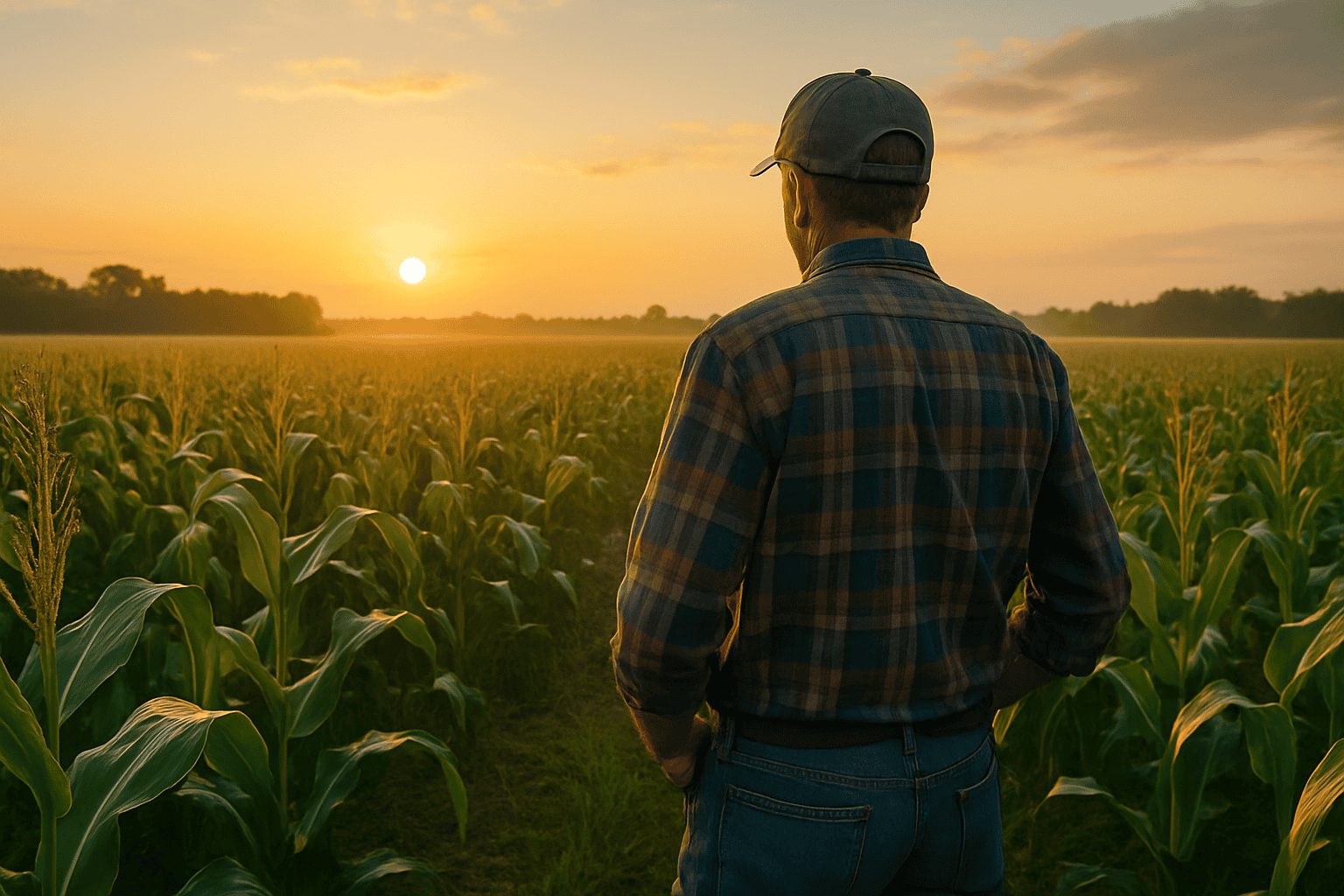Why Storytelling Matters in Ag Marketing
In today’s digital landscape, facts and features alone aren’t enough to sell a product. Farmers and ag businesses are bombarded with marketing messages daily. What makes your business stand out? A compelling story.
Storytelling isn’t just about selling—it’s about creating connections, fostering trust, and turning your customers into passionate advocates. When people resonate with a story, they’re more likely to remember it, share it, and take action.
In this blog, we’ll explore how storytelling can elevate your ag marketing strategy, build stronger relationships, and ultimately drive sales.
1. The Power of Storytelling in Agriculture
Why it Works:
- People relate to stories more than data or product specs.
- Good stories create an emotional connection, making your brand memorable.
- Farmers trust recommendations from peers and real-life experiences over generic ads.
How It Helps Your Brand:
- Differentiates you from competitors.
- Builds customer loyalty and word-of-mouth referrals.
- Turns satisfied customers into brand ambassadors.
Key Takeaway: A well-told story resonates with your audience, helping them see how your product fits into their world.

2. What Makes a Great Ag Marketing Story?
A great ag marketing story should include:
✅ A Relatable Hero: The customer, a farmer, or an ag business owner.
✅ A Real Problem: Common pain points (e.g., equipment downtime, rising costs, unpredictable weather).
✅ A Solution: How your product or service solved their issue.
✅ A Positive Outcome: The tangible benefits (time saved, money earned, improved productivity).
Example: Instead of saying, “Our seed tender is the most efficient on the market,” tell a story like:
“John, a third-generation farmer, struggled with slow planting seasons due to outdated equipment. He switched to our seed tender and cut his loading time in half. Now, he plants faster, saves fuel, and gets more done every day.”
Key Takeaway: A strong narrative makes your product’s impact real for potential customers.
3. Turning Customer Testimonials into Powerful Stories
Why it Matters:
- 82% of consumers trust customer testimonials over generic ads.
- Farmers prefer real experiences from peers rather than corporate marketing speak.
How to Create a Story-Driven Testimonial:
- Start with the challenge: What issue did they face before using your product?
- Introduce the turning point: How did they discover your product or service?
- Showcase the result: How has your product improved their operation?
- Make it personal: Share names, locations, and specifics to add credibility.
Key Takeaway: Real customer experiences, told through a compelling story, create authentic and persuasive marketing.
4. Storytelling Across Different Marketing Channels
📢 Where to Share Your Stories:
✔ Social Media: Post customer success stories, behind-the-scenes videos, and testimonials.
✔ Blog Posts: Feature in-depth case studies of customers who saw big results.
✔ Email Campaigns: Share a “before and after” story to engage your audience.
✔ Website Content: Create a “Farmer Success Stories” section.
✔ Video Marketing: Produce short storytelling clips showcasing customer experiences.
✔ Trade Shows & Print Ads: Use storytelling-driven marketing materials to capture attention.
Example: Instead of writing a product feature post like “Our tractors have the best fuel efficiency,” tell a real farmer’s story about how your tractor saved them money on fuel during harvest season.
Key Takeaway: Storytelling works across all platforms—find creative ways to integrate it into your marketing.
5. Creating an Emotional Connection with Farmers
Why it Matters:
- People make buying decisions based on emotion, then justify them with logic.
- A strong emotional connection keeps your brand top-of-mind.
- Farmers value trust, reliability, and authenticity.
How to Create Emotional Stories:
- Share generational farming stories that highlight tradition.
- Talk about overcoming challenges (e.g., weather, market fluctuations).
- Celebrate wins—feature customer success stories and milestones.
Example: Instead of saying, “Our seed drill increases yield,” share a farmer’s journey:
“Sarah took over her family farm after her father retired. She wanted to improve efficiency but was hesitant about new technology. After switching to our seed drill, she saw a 20% increase in yield—securing her family’s farm for the next generation.”
Key Takeaway: When customers see themselves in a story, they connect with your brand on a deeper level.
6. Turning Your Customers into Brand Advocates
Why It Works:
- People trust word-of-mouth recommendations over traditional ads.
- Customer advocacy leads to organic brand growth.
- Happy customers will sell for you if you empower them.
How to Turn Customers into Advocates:
✔ Feature them in your content (blog, video, social media).
✔ Encourage user-generated content (photos, testimonials, hashtags).
✔ Offer referral programs to reward customers who recommend you.
✔ Engage with them on social media (share their stories, respond to comments).
✔ Host contests & giveaways for customers who share their experiences.
Key Takeaway: Your most powerful marketing asset is a happy customer with a story to tell.

Conclusion: Make Storytelling a Key Part of Your Ag Marketing Strategy
Storytelling isn’t just a trend—it’s a marketing strategy that works. Farmers relate to real experiences, emotional connections, and authentic recommendations.
Final Takeaways:
✔ Focus on customer-driven stories, not just product features.
✔ Use storytelling across multiple channels (social media, blogs, video, print).
✔ Create emotional connections that build trust.
✔ Empower customers to share their experiences and become advocates.
At Fastline Marketing Group, we specialize in crafting story-driven marketing that resonates with the agricultural community. Need help turning your brand’s success into compelling stories? Let’s talk!


